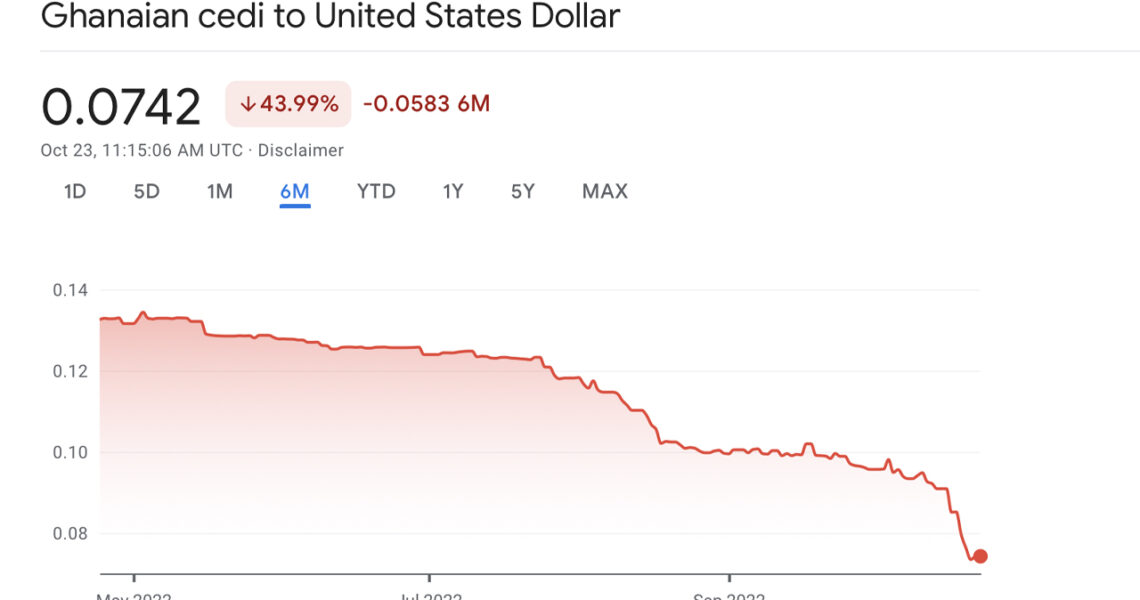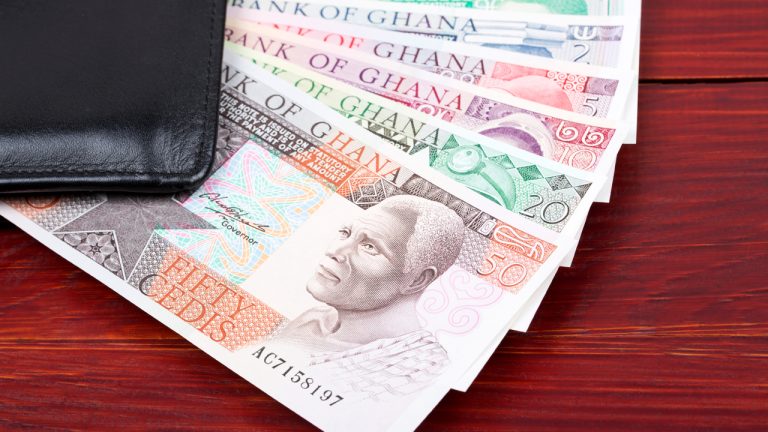
Report: Ghanaian Cedi Slides Further Versus the US Dollar to Become World’s Worst-Performing Currency
2022-10-24
As Ghana waits for a financial bailout from the International Monetary Fund (IMF), the country’s currency continued its slide versus the dollar after the respective currencies’ exchange rate slipped to just under C15:$1. Following this latest plunge, the cedi has now depreciated by more than 55% in 2022 and this makes it the world’s worst-performing currency.
World’s Worst Performing Currency
The depreciating Ghanaian currency — the cedi — recently touched a new low versus the U.S. dollar on the forex parallel market after it reportedly slipped by 12% in just four days. Reports of the Ghanaian currency slumping to a new low versus the greenback came shortly after the cedi’s 3.3% slip on October 17 confirmed its new status as the world’s worst-performing currency.
According to the Myjoyonline report, the acute shortage of U.S. dollars among banks and bureaux de change is the primary reason why the cedi has now fallen by more than 50% since the start of 2022. To support this assertion, the report cites testimony from one unnamed banking executive who urged monetary authorities to make a quick and decisive move to halt the currency’s decline. Another unnamed banking executive suggested that individuals’ hoarding of the U.S. dollar may be compounding the cedi’s woes as well.
Ghana Eagerly Awaits IMF Bailout
However, in a different report, Myjoyonline quotes Ghana’s Finance Minister, Ken Ofori-Atta, who expressed his surprise at the cedi’s rapid depreciation. He claimed that Ghanaians importing goods earmarked for the upcoming Christmas holidays are partly to blame for the currency’s collapse.
“It’s quite perplexing to see where it’s going. Of course, typically in October, people are importing for Christmas and maybe there’s a rush for that (the dollar) but my expectation is that once we also conclude with the Fund (IMF), that will lead to the fund’s disbursement early next year to do that,” Ofori-Atta reportedly said.
Also, in the report, the Finance Minister appeared to imply that once the IMF’s bailout funds are disbursed, the cedi will stabilize. Ofori-Atta also implored Ghanaians to avoid panicking as doing this tends to “put pressure on the currency.” He also insisted Ghana’s economy is in fact “in good shape.”
Meanwhile, at the time of writing, some media reports suggested the cedi had lost further ground versus the greenback and was now trading at just under C15:$1. According to a Myjoyonline report, this exchange rate between the two currencies suggests that the cedi’s depreciation against the greenback now exceeds 55%.
Register your email here to get a weekly update on African news sent to your inbox:
What are your thoughts on this story? Let us know what you think in the comments section below.